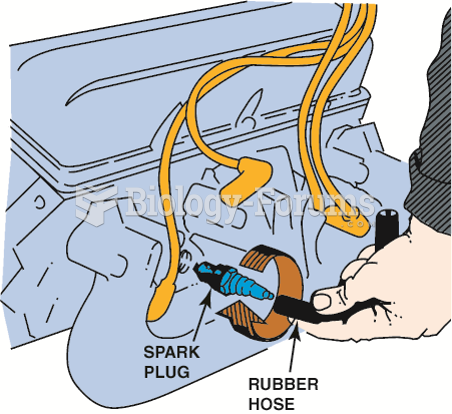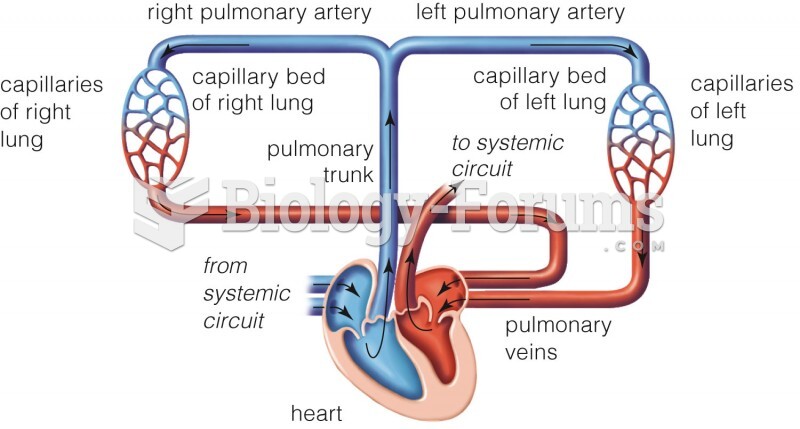|
|
|
In 1864, the first barbiturate (barbituric acid) was synthesized.
Fatal fungal infections may be able to resist newer antifungal drugs. Globally, fungal infections are often fatal due to the lack of access to multiple antifungals, which may be required to be utilized in combination. Single antifungals may not be enough to stop a fungal infection from causing the death of a patient.
Signs and symptoms that may signify an eye tumor include general blurred vision, bulging eye(s), double vision, a sensation of a foreign body in the eye(s), iris defects, limited ability to move the eyelid(s), limited ability to move the eye(s), pain or discomfort in or around the eyes or eyelids, red or pink eyes, white or cloud spots on the eye(s), colored spots on the eyelid(s), swelling around the eyes, swollen eyelid(s), and general vision loss.
In 1886, William Bates reported on the discovery of a substance produced by the adrenal gland that turned out to be epinephrine (adrenaline). In 1904, this drug was first artificially synthesized by Friedrich Stolz.
Carbamazepine can interfere with the results of home pregnancy tests. If you are taking carbamazepine, do not try to test for pregnancy at home.
 A schematic of a typical glow plug circuit. Notice that the relay for the glow plug and intake air ...
A schematic of a typical glow plug circuit. Notice that the relay for the glow plug and intake air ...
 Use a vacuum or fuel line hose over the spark plug to install it without danger of cross-threading ...
Use a vacuum or fuel line hose over the spark plug to install it without danger of cross-threading ...





